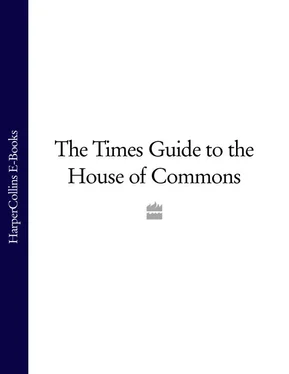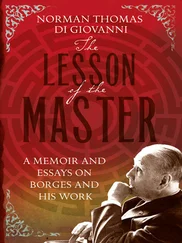Another of Sir Menzies’ legacies was to have ordered preparations for an early election from 2007, meaning that target seat planning, candidate selection, fundraising and campaign staff recruitment were well advanced. The process was headed by Lord Rennard, the party’s chief executive and architect of a string of by-election coups, but under Mr Clegg’s leadership pressure developed for a new approach. Lord Rennard stood down in May 2009, coinciding with controversy over his Lords expenses claims, for which he was later cleared, meaning that none of Mr Clegg’s core team had experience of running a general election.
Given Dr Cable’s higher profile, they agreed long beforehand to make the campaign a double act. To avoid a repeat of the fraught “two Davids” SDP-Liberal Alliance duopoly of 1987, when reporters took delight in pouncing on differences between David Owen and David Steel, they campaigned together. The Clegg-Cable partnership worked well enough but was rapidly overtaken by events, as the television debates finally made Nick Clegg a national figure in his own right. Greg Hurst is the author of Charles Kennedy: A Tragic Flaw (2006)
How Brown’s rivalry with Blair proved to be Labour’s undoing
Philip Webster
Election Editor
His voice breaking with emotion, Gordon Brown, wearing a borrowed red tie, said farewell to frontline politics outside the door of No 10 five days after the general election. His final attempt to keep his party in office with a last-ditch deal with the Liberal Democrats was doomed from the start. When it came unstuck he was impatient to go, setting off for the Palace to see the Queen when his successor, David Cameron, was barely ready to follow suit. It was the job for which he had yearned all his life, and particularly during the ten years it was held by Tony Blair.
When his dream to win an election in his own right was finally shattered, however, Mr Brown was in no mood to hang around. In just three years the two founding fathers of new Labour had gone and the Conservatives were back in government for the first time since 1997. It was a partnership that had made Labour electable again after 18 years in the wilderness, but when they looked back on the Blair-Brown years most Labour politicians reflected that it was the intensity of their relationship, and Brown’s at times irrational desire to oust his old friend, that helped to destroy the project that they had worked so hard to create.
Mr Blair won the 2005 election having issued in advance an unprecedented promise that it would be his last, although he intended to serve for most of it. The move, taken at a time of weakness towards the end of the previous Parliament, was regretted by friends and other Blairites, who always harboured doubts about Mr Brown’s ability to win an election.
In the year after his third victory the Brownites kept snapping at Mr Blair’s heels and in the summer of 2006, The Times was dragged into the drama. Late in August we were invited to Chequers for an interview to mark Mr Blair’s return from his summer holiday. Our expectation was that the intention was to allow Mr Blair to lay out a timetable for his departure. The opposite happened. Given at least eight opportunities to say that the autumn party conference would be his last, Mr Blair declined. Asked at lunch afterwards what we thought the story would be, we told Mr Blair that it would be: “Blair defies Labour over leaving.” He did not demur.
Our splash the next day provoked an explosion throughout the Labour movement. Brown’s allies were furious and some of them launched into a plot to remove him. A Wolverhampton curry house was the venue for a number of parliamentary aides and Tom Watson, a junior minister close to Brown, to plan a letter calling on Mr Blair to go. “Without an urgent change in the leadership of the party it becomes less likely that we will win the election,” it said and its publication left the Prime Minister looking hugely vulnerable.
There was only one way to save his skin: to do what he had so deliberately avoided doing in his interview with The Times the previous week. He announced that the forthcoming conference would be his last as Labour leader, admitting that he would have preferred “to have done this in my own way”. Mr Brown got his way, but as the years unfolded it began to look increasingly like a pyrrhic victory. Mr Blair’s concession at least allowed the relationship between the two to return to something like the friendship they had once enjoyed.
Mr Brown was on course for the leadership and with no senior figures rising to challenge him he was crowned Labour king without a contest on June 24, 2007, promising to give the party not just policies but a soul. In his acceptance speech in Manchester, Mr Brown appointed a general election coordinator to show his party that it should be thinking of going to the country soon.
A far more dramatic announcement was, however, going to be part of Mr Brown’s speech until only a short time before he delivered it. He and many of his closest aides were planning that Sunday morning to do what no other leader had done before and announce there and then that there would be a general election the following year. This was to be a new-style leadership, it was argued, so let’s start doing things differently from the start. In the end it was removed; they concluded that it would be giving away far too much to the opposition parties, and there was even a fear that it might look disrespectful to the Queen, who is supposed to be told first of such matters. As later events were to show, however, it might have changed history.
It was left only for Mr Blair to take his bow the following week in the Commons, which he did with such customary élan that he had MPs from all sides rising in an unprecedented standing ovation at the end. He had managed ten years as Prime Minister, a remarkable feat. He had 28 minutes in the Palace saying goodbye to the Queen. Mr Brown went in later for a 57-minute audience and returned to No 10 as Prime Minister declaring: “Let the work of change begin.”
Along with Peter Mandelson, Mr Brown and Mr Blair were the architects of the new Labour project. They were friends from their entry to the Commons together in 1983 but the tensions created when Mr Blair took the leadership never lifted until he finally left office. He gave his Chancellor unprecedented powers over domestic policy, ones that he exercised to an extraordinary degree. Decisions that might normally have been made in No 10 were taken at the Treasury; Mr Blair often learnt details of Brown Budgets at the last possible moment. His style was one of “Stalinist ruthlessness”, according to a former Cabinet Secretary.
Mr Brown’s most fervent supporters believe that the tragedy of their man was that he came to the post too late, when public enthusiasm for new Labour, eroded so much by the Iraq war, was already seriously on the wane. With three victories chalked up by Mr Blair, his successor was always going to find it hard to bring off a fourth. But within the wider Labour movement, the tragedy of Mr Brown was that both he and his allies overestimated his ability to do the hardest job in Britain. They never foresaw that the man who enjoyed strong levels of public support for most of his time as Chancellor could become so unpopular in the relatively short time he occupied No 10.
For all the tributes he received for the way he led the country, and to a lesser extent the world, during the financial crisis, the public took against him. David Cameron based his whole election campaign on a slogan warning of “five more years of Gordon Brown” because Conservative focus groups, like Labour’s, told them that Mr Brown’s personal position was irretrievable.
Читать дальше












